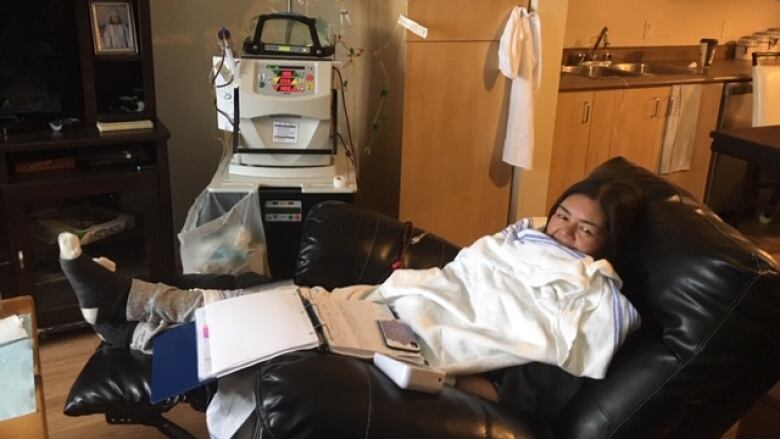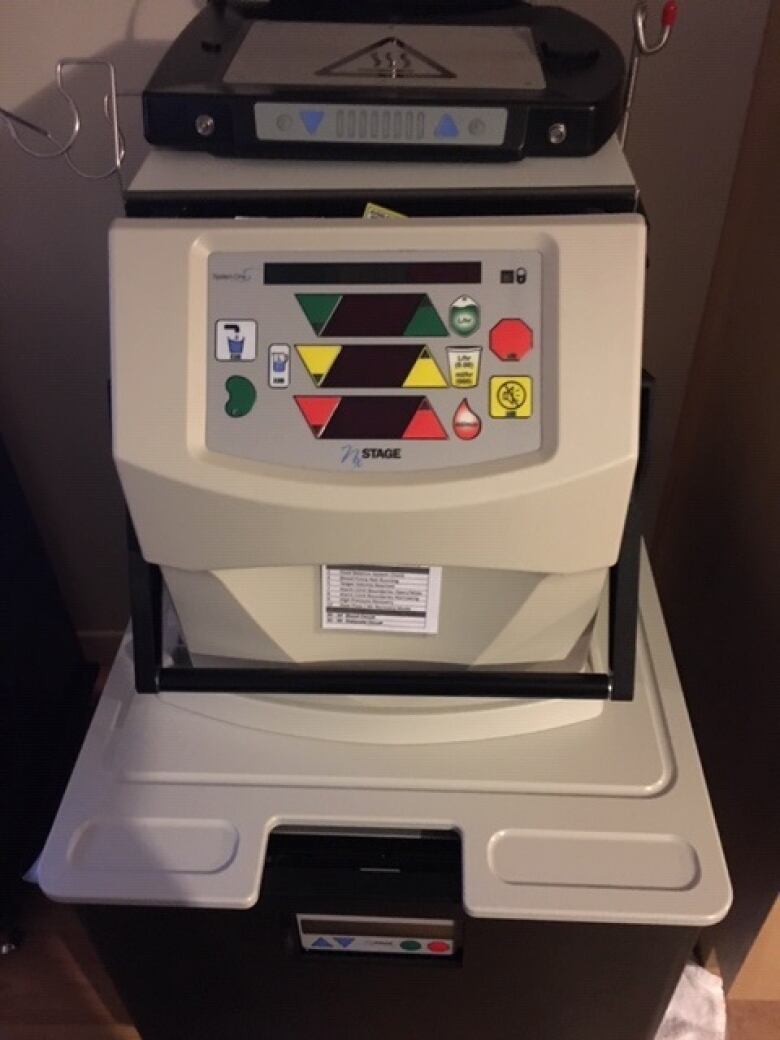'Tears of joy and happiness': Home dialysis treatment finally a reality for Cree community
Waswanipi woman can now receive hemodialysis at home as part of pilot project

Shirley Matoush, a Cree woman from Waswanipi, used to wake up at 5 a.m. three days a week to take a two-hour medical transport to Chibougamau for her dialysis treatments.
Now, she'sfinally able to receive treatment in her home.
Matoush is the first person in her community to receive in-home hemodialysis, thanks to a pilot project by the Cree Board of Health and Social Services of James Bayand the Montreal General Hospital.
Virginia Wabano, the Cree Health Board's local director in Waswanipi, said it was "very emotional" the first day they were able to set the procedure up atMatoush's home.
"There were a lot of tears, and still there's tears tears of joy and happiness," she said.
There are only two hospitals in the region that offer hemodialysis, which means patients have to travel or live away from home to access treatment in Chisasibi, Chibougamau or Montreal.
The Cree Health Board launched its pilot project in Waswanipi more than two years ago in an effort to keep hemodialysis patients close to their families during treatments.
Since then, they have been training, assessing patients and preparing to start the in-home treatments.

There are currently 68 dialysis patients in the Cree Nation, 15 of them in Waswanipi, and many of them are waiting for a compatible kidney donor.
"My parents are really happy that I'm doing this at home," said Matoush, 44.
"They used to be worried for me when I travelled early in the morning, like in snowstorms, they would tell me to be careful on the road."
While home hemodialysis isn't an option for every patient, the Cree Health Board hopes to expand the program to other Cree communities.
Hemodialysis involves a machine that draws, cleans and returns blood to the body.
The home hemodialysis system hooks up to the patient's sink and is designed for patients to be independent, with some help from family members.
Local nurses have been helping Matoush while she gets used to the process.
Doing her dialysis at home allows Matoush to have a more regular routine, because she can plan her own schedule and even undergo treatment while sleeping.
"It has changed a lot," she said. "It gives me more energy to do things, and I don't get tired."
With files from Susan Bell












_(720p).jpg)


 OFFICIAL HD MUSIC VIDEO.jpg)
.jpg)



























































































